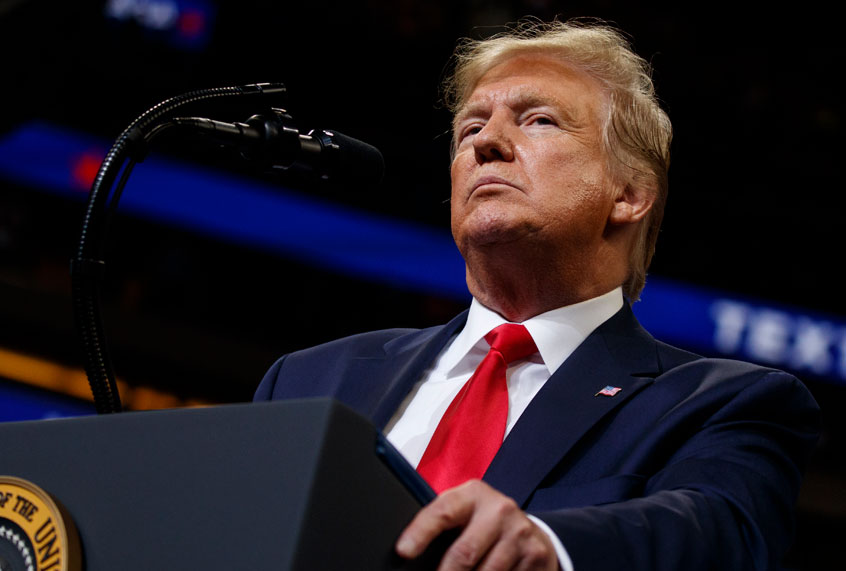A new report claims that President Donald Trump approved cyberattacks against the nation of Iran after rejecting more violent alternatives for retaliation.
Trump signed off on the Pentagon’s decision to engage in cyberattacks against computer systems that control missile launches and rockets within Iran in order to retaliate for that nation’s shooting down of an American drone last week, according to CBS News. The network based its reporting on “sources familiar with the matter” and also claimed that Trump decided not to engage in military strikes against Iran because the casualties would have been disproportionate to what Iran had done to the United States.
As Trump said on Saturday, “It was probably intentional. Regardless, they targeted something without a person in it, without a man or woman, and certainly without anybody from the United States in it.”
The story of the cyberattacks was initially broken by Yahoo News, which reported that U.S. Cyber Command had decided to target an Iranian spy group that had supported limpet mine attacks on commercial ships last week. The digital strike also occurred in response to the shooting down of an unmanned drone by Iran last week, an act that escalated tensions in an already delicate diplomatic situation between the two countries.
The United States and Iran disagreed over a number of critical details regarding the downed drone. American officials claimed that the drone had been shot down over international airspace — namely, over the Strait of Hormuz, an important global shipping route — and that the drone itself was a MQ-4C Triton. By contrast, Iran’s Revolutionary Guard argued that the drone had been shot down over their sovereign territory and that the drone model was a RQ-4 Global Hawk. Both types of drones are unmanned surveillance aircraft manufactured by Northrop Grumman.
Although the cyberattack was not as belligerent as an outright military strike, that decision — combined with the Trump administration deploying 1,000 new troops to the Middle East last week — still constitutes another sign that the Trump administration is taking a more assertive position toward Iran than President Barack Obama. As Secretary of State Mike Pompeo said during an appearance on “Fox & Friends” last month, “the previous administration took a different path. They underwrote that government, giving them hundreds of billions of dollars and the ability to put the terror team in place that we’re seeing today — the very terror threat that we’re facing. President Trump’s taken a very different course of action. We are determined to stop not only their nuclear program — and from them ever getting a nuclear weapon — but to prevent them from building up their missile program and conducting terror campaigns.”
He added, “Without getting into specifics, you can be sure that President Trump will ensure that we have all the resources necessary to respond in the event that the Islamic Republic of Iran should decide to attack Americans; or American interests; or some of our great soldiers, sailors, airmen or Marines who are serving in that region; or the diplomats serving in Iraq or elsewhere.”
Trump’s critics argue that his policies have been unnecessarily provocative toward Iran and that his hard-line views are inaccurate. In January former CIA chief John Brennan tweeted to Trump, “Your refusal to accept the unanimous assessment of U.S. Intelligence on Iran, No. Korea, ISIS, Russia, & so much more shows the extent of your intellectual bankruptcy. All Americans, especially members of Congress, need to understand the danger you pose to our national security.”

